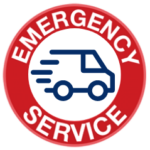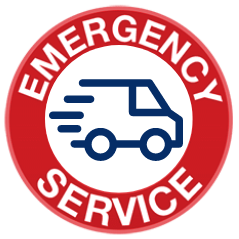Dust is a hazard that all Johns Creek, Georgia, homeowners face. It’s an ever-present hassle in all homes, though some experience it to a greater degree than others. If you have a lot of dust in your home, it’s probably doing more than extending your cleaning routine. Airborne dust particles can settle on anything including the internal components of your heating and cooling system.
Dust in your HVAC system can become a noticeable problem as it causes your efficiency to decrease and your energy bills to rise. Watch out for these common hazards so you can keep dust from hampering your home comfort.
Damaging Essential Components
Your HVAC system continuously circulates air when it’s running. Internal fans blow air over refrigerant-filled coils to get your home to the right temperature. In a perfect world, this air is always clean and dust-free, but the reality is usually a far cry from this ideal. Dusty coils have trouble absorbing heat and tend to ice over. Dust on the blower motor hampers smooth operation. Both situations will cause your efficiency to plummet.
You shouldn’t take on internal HVAC maintenance on your own. There are many crucial parts inside your unit, and adjusting the wrong one could make your efficiency even worse. Turn to the professional technicians at E. Smith Heating & Air Conditioning instead. Schedule annual tuneups for your heating and cooling systems to keep them clean.
During your maintenance visit, our techs will thoroughly inspect and clean your unit. Not only will they clean dust and debris from internal components, they’ll also lubricate moving parts, adjust belts, and tighten electrical connections. The result of this thorough inspection is a system that will operate more efficiently, experience fewer breakdowns, and enjoy a longer life span.
Clogging Air Ducts
If too much dust is circulating through your HVAC system, it may build up in the ductwork. This will diminish your efficiency by providing a smaller opening for air to flow through. A well-installed HVAC unit is perfectly sized for the square footage of your home and the size of your ducts. If this careful balance is thrown off, comfort drops and utility bills rise.
You can get an idea of the state of your air ducts simply by removing a register and taking a peek inside. You can clean the register yourself, but severely clogged air ducts should be left to a professional. Dirty air ducts often indicate another problem. The dust often enters through leaks in the system. If you’re dealing with dusty ducts, consider sealing and insulating them to stop the problem at its source.
Slowing the Air Filter
Dust can hamper your HVAC efficiency by slowing the flow of air through your filter. You should check your filter once a month and change it at least every three months. Homes with pets, children, and high dust levels will probably need more frequent filter changes. If your filter gets clogged with dust, your HVAC system will need to work harder to pull air through, decreasing your energy efficiency.
If you can see excessive dust in the air, but your filter still looks clean, you probably need a better air filter. Look for one with a higher MERV rating that will stop smaller particles. You could also upgrade to an air purifier. Our Infinity Air Purifier GAPA and Performance Air Purifier PGAP will stop particles as small as 0.30 microns in size. This will help you stop dust as well as pollen, dander, and many pathogens.
If you’re battling dust in your home, contact E. Smith Heating & Air Conditioning for smart solutions to the problem. Give us a call at 678-369-8866, and we’ll help you improve your indoor air quality for better efficiency heating and cooling in your home.
Image provided by Shutterstock


